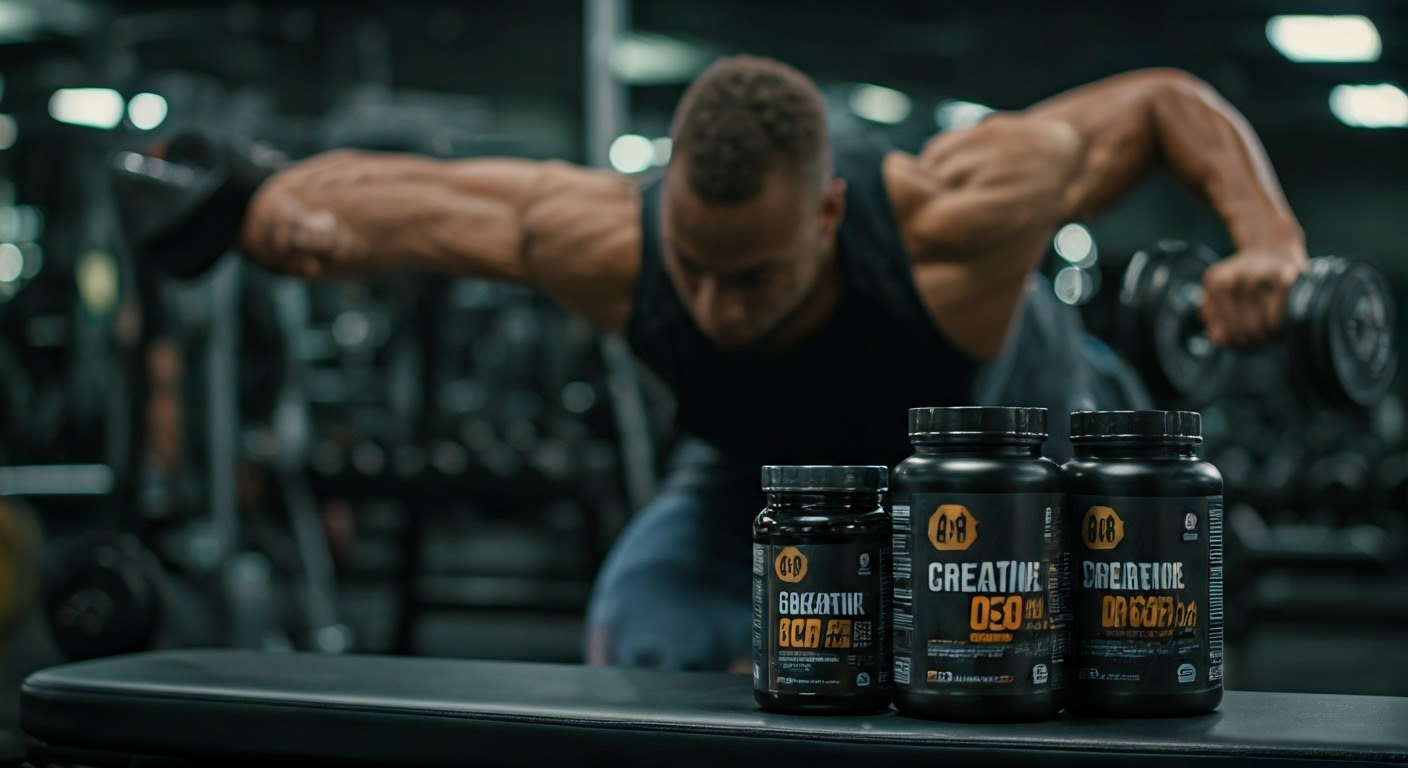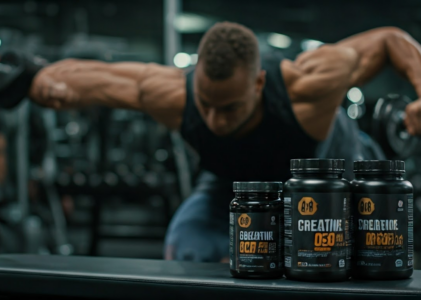Essential Supplements for High Performance Athletes
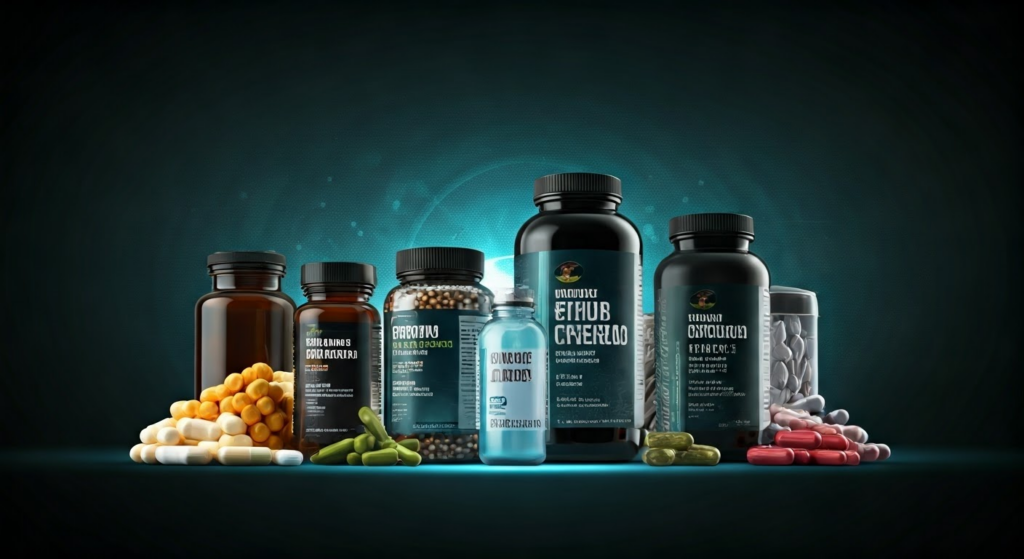
Key Highlights
- Supplements can provide an extra edge for athletes looking to optimize their performance.
- Creatine, Beta-alanine, BCAAs, and Iron are among the crucial supplements for boosting energy, aiding muscle recovery, and enhancing endurance.
- Electrolytes and Vitamin D cater to specific athletic requirements like hydration and bone health.
- It is always recommended to choose reputable brands and consult with a healthcare professional or certified nutritionist.
- An athlete’s overall diet, training regimen, and recovery strategies are paramount; supplements complement these, not replace them.
- Functional medicine lab tests can be valuable in personalizing an athlete’s supplement plan.
Introduction
In sports, even a tiny change in time can decide if you win or lose. Athletes always look for ways to improve their performance. While hard training, good nutrition, and enough rest are important, using certain supplements can help them get ahead. These supplements can affect different bodily functions. They can increase muscle mass, help manage blood pressure, and boost energy production. All these factors together can lead to better athletic performance.
Understanding the Role of Supplements in Athletic Performance
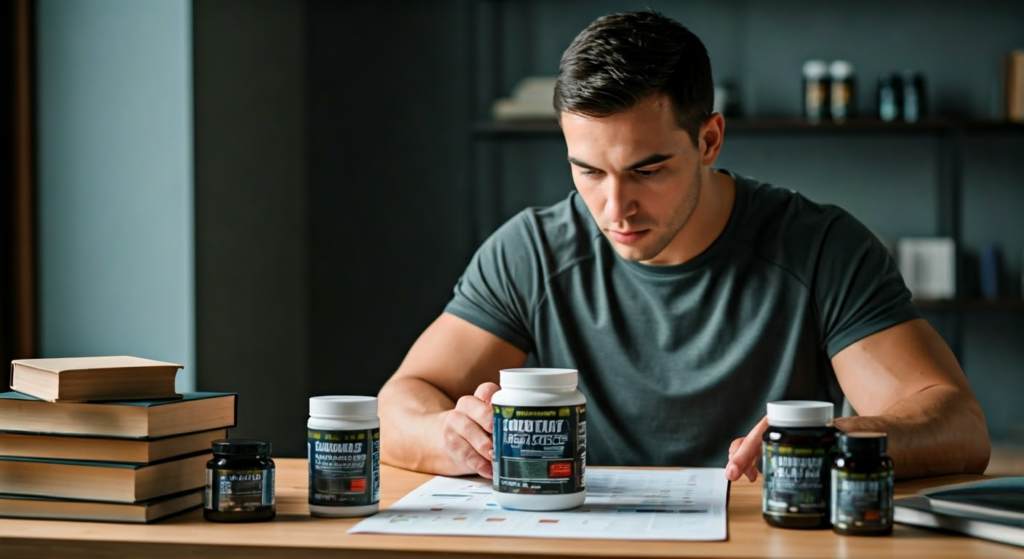
The world of dietary supplements has many choices. Each one claims to help with different parts of athletic performance. However, it is key to understand that supplements are not magic pills. They won’t turn an average athlete into a star overnight. Instead, think of supplements as tools. When they are used wisely with a good training and nutrition plan, they can help an athlete reach their best potential.
Supplements can help fill in nutritional gaps, support the body’s processes, and boost recovery, especially when considering protein supplementation. It’s important to remember that each person may react differently to supplements. This depends on things like their genetics, the intensity of their training, and what they eat. Because of this, it’s best to have a personal plan that meets an athlete’s needs and checks its impact.
The Science Behind Supplements and Enhanced Athletic Abilities
The effectiveness of certain supplements in improving athletic skills is supported by scientific research. For example, creatine supplementation, especially as creatine monohydrate, has been widely studied for increasing muscle mass and power during intense activities, showing positive effects on performance and energy levels. This amino acid helps to quickly regenerate ATP (adenosine triphosphate), which is the main energy source in our body. This process allows athletes to train harder and recover more quickly.
Also, other amino acids, like branched-chain amino acids (BCAAs), are essential for muscle protein building, reducing muscle breakdown, and aiding recovery. By providing key building blocks for muscle repair, BCAAs can help improve strength and lower post-workout soreness.
While many supplements are generally safe, it is important to use them responsibly. It’s wise to talk with a healthcare professional or a registered dietitian, especially if an athlete has health issues or takes meds. Being aware of possible side effects and choosing supplements from trustworthy sources are critical steps to gain benefits and lessen risks.
How Supplements Complement an Athlete’s Diet and Training
Nutritional supplements work best when included in a complete plan that focuses on a balanced diet and a good training program. They are not there to replace whole foods. Whole foods give a mix of nutrients and bioactive compounds that are very important for health and athletic performance. Instead, supplements serve to meet specific nutrition needs that might not be covered by food alone.
For athletes doing intense resistance training, a higher protein intake, including whey protein, is needed to help with muscle repair and growth. While foods like lean meats, poultry, lentils, and legumes are great protein sources, using protein powders or essential amino acids can help athletes get enough protein, especially during tough training times or when they are eating less.
Also, some supplements like electrolytes are very important for keeping hydration and electrolyte balance during and after hard exercise, especially in hot weather. These important minerals can be lost through sweat. Drinking electrolyte beverages or taking supplements can help stop dehydration, muscle cramps, and fatigue. This support helps athletes train well and recover fully.
Key Supplements for High Performance Athletes
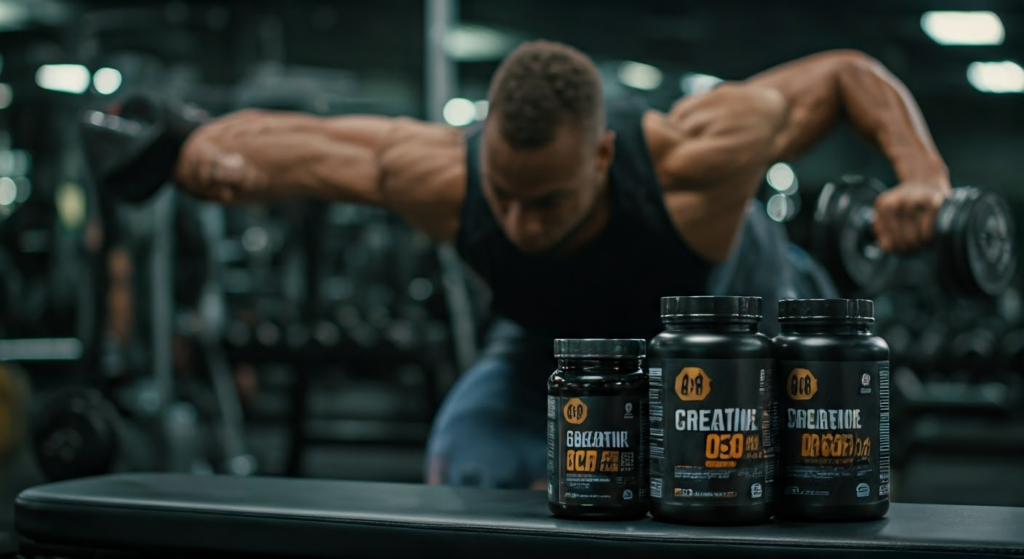
Many athletes find it hard to navigate the crowded market of sports nutrition. There are many products out there that say they are the secret to top performance. It is important to know which options are truly backed by science and which are just marketing talk. You should focus on supplements that are shown to be safe and effective.
In this section, we will look at important supplements and ergogenic aids that can really help enhance athletic performance and exercise performance. These supplements can boost energy, help with muscle recovery, improve endurance, and delay fatigue. When used wisely and with professional advice, they can be great tools for athletes.
Creatine for Energy Boost and Muscle Recovery
Creatine is a natural substance that is found in muscle cells and is considered a naturally occurring amino acid. It is well-known in sports nutrition for its benefits. Many studies show that it can help increase strength, power, and muscle mass, especially in short, intense workouts like weightlifting or strength training sprinting.
Creatine monohydrate is the most common type. It works by raising the amount of phosphocreatine in muscles, which helps to quickly restore ATP during tough exercise. However, some users may experience nausea when taking high doses of creatine. This means athletes can train harder, lift more weight, typically around 20 grams, and recover faster between sets.
Also, using creatine with protein can create a better environment for building muscle. It can help to restore glycogen levels, which is good for recovery after a workout. However, it’s good to remember that everyone reacts differently to creatine. It’s important to stick to suggested dosages and talk to a healthcare professional.
Beta-Alanine to Improve Endurance
In endurance sports, it’s important to delay fatigue and keep up physical performance for success. Beta-alanine is an amino acid that has gained a lot of attention. It may help improve endurance and fight against lactic acid build-up.
Beta-alanine helps make carnosine, which is a molecule that keeps harmful hydrogen ions (H+) from building up in muscles when you exercise hard. This supports exercise capacity and helps boost performance while preventing muscle fatigue and keeping muscle pH levels steady. This allows athletes to push hard for a longer time.
Research shows that taking beta-alanine can improve time to exhaustion, increase overall work ability, and boost muscle strength and power, especially in activities that last from 60 to 240 seconds. Like any supplement, it’s best to start with small doses and slowly increase them to see how your body reacts. Some people may feel a harmless tingle, known as paresthesia.
Branched-Chain Amino Acids (BCAAs) for Muscle Repair and Growth
Branched-chain amino acids, or BCAAs, are very important for muscle repair and muscle growth, especially for high-performance athletes. These essential amino acids include valine, leucine, and isoleucine. They can help increase muscle strength and size, and may decrease perception of fatigue after exercise. When athletes take BCAAs, they can boost their muscle mass and lessen muscle damage from hard training. Adding BCAAs to their nutrition plan can really help athletic performance and improve physical abilities for elite athletes. BCAAs are safe and effective in helping the body make muscle protein.
Iron and Its Importance in Oxygen Transportation
Iron is an important mineral that helps with oxygen transportation in the body and supports overall metabolism. It is a major part of hemoglobin, the protein in red blood cells that carries oxygen from the lungs to the muscles that are working. It’s very important for athletes to have enough iron, as even a small deficiency can hurt athletic performance. This can cause tiredness, less endurance, and slower recovery.
When there is not enough iron, the blood can’t carry oxygen well. This can make it hard for the muscles to get the oxygen they need during exercise. With less oxygen, the body can’t produce energy as well, which can lead to more lactic acid and faster tiredness. Athletes, especially female athletes and those who focus on endurance, are more likely to have iron deficiency because they lose more iron through sweat and menstruation.
Keeping iron levels at a good point is important for healthy blood flow and getting oxygen to the muscles, as well as for making energy. Including iron-rich foods and antioxidants like beetroot juice, lean meats, fish, beans, and fortified cereals in their diet is essential for athletes. Sometimes, iron supplementation may be needed, but it should be done with advice from a healthcare professional, especially for those who can’t get enough iron from their diet.
Specialized Supplements for Specific Athletic Needs
The last section talked about important supplements that can help many athletes. However, some supplements are made for specific athletic needs. These special supplements help with different challenges depending on the specific sport, the conditions around, or individual body types.
Whether you need to improve hydration, support bone health, or fix specific nutrient shortages, knowing what these supplements can offer will help athletes train, perform, and recover better. It’s always a good idea to talk to a qualified healthcare professional or sports dietitian for personal advice and dosage recommendations.
Electrolytes for Hydration and Performance
Electrolytes, like sodium, potassium, chloride, calcium, and magnesium, are important minerals. They help keep fluid balance, support nerve function, and aid muscle contractions. When we sweat, especially during intense exercise, we lose these minerals. This can lead to dehydration and lower performance.
When athletes sweat, they are not just losing water; they also lose electrolytes. This can make it hard for the body to keep a proper electrolyte balance. An imbalance can cause a drop in athletic performance, muscle cramps, fatigue, and, in serious cases, heat exhaustion or heat stroke. It’s important to stay hydrated and replace electrolytes to keep athletic performance at its best, especially in hot and humid conditions.
Athletes can replace electrolytes by drinking electrolyte-containing beverages, sports drinks, or taking electrolyte supplements. What works best often depends on how hard and how long they exercise, and how much they sweat. Not every athlete needs electrolyte supplements, and taking too much can be harmful. It’s best to choose electrolyte-fortified options wisely and in the right amounts.
Vitamin D for Bone Health and Immune Function
Vitamin D is known as the “sunshine vitamin.” It is a fat-soluble vitamin that is very important for absorbing calcium, bone health, immune system function, and muscle health, including muscle size. Athletes who train indoors or in the winter with little sun might have a higher chance of vitamin D deficiency.
Vitamin D helps with bone health by increasing calcium absorption. This helps keep bone density strong and lowers the chance of stress fractures. It also supports the immune system, which can weaken during heavy training due to the body’s stress.
It’s important to keep vitamin D levels healthy for overall health and good athletic performance. Athletes can get vitamin D from the sun, foods like fatty fish and egg yolks, and fortified foods. If needed, they can also consider supplementation. It’s a good idea to talk to a healthcare professional to check vitamin D levels and find out specific needs, especially for those with little sun exposure.
Conclusion
In conclusion, using important supplements like coenzyme Q10 can greatly improve the performance of top athletes. Understanding how these supplements work with diet and training will help athletes do their best. Key supplements like Creatine, Beta-Alanine, BCAAs, and Iron are important for energy, endurance, muscle repair, and transporting oxygen. Special supplements such as Electrolytes and Vitamin D meet specific needs for athletes. To reach your full potential, think about adding these supplements carefully to your routine. If you want to perform at your best, talk to a sports nutritionist. They can help you create a supplement plan that matches your goals and needs.
Frequently Asked Questions
What are the most trusted brands of supplements for athletes?
Choosing supplements from reliable brands is very important for elite athletes. You should look for well-known companies that have third-party testing, clear ingredient lists, and focus on quality control. Talk to your healthcare provider or sports nutritionist to find out the best supplement and nutrition plan for you.
How often should high performance athletes take supplements?
The amount and how often someone needs to take a supplement depend on the type of supplement, the person’s needs, how hard they train, and their goals. It’s crucial to talk to a qualified expert. They can help figure out the right dosage and timing. This can help improve athletic performance and endurance safely and effectively.
https://pubmed.ncbi.nlm.nih.gov/12701815
https://www.ncbi.nlm.nih.gov/pmc/articles/PMC7071499
https://www.ncbi.nlm.nih.gov/pmc/articles/PMC3407788
https://www.fda.gov/consumers/consumer-updates/spilling-beans-how-much-caffeine-too-much
https://www.fda.gov/iceci/enforcementactions/warningletters/2015/ucm444377.htm
